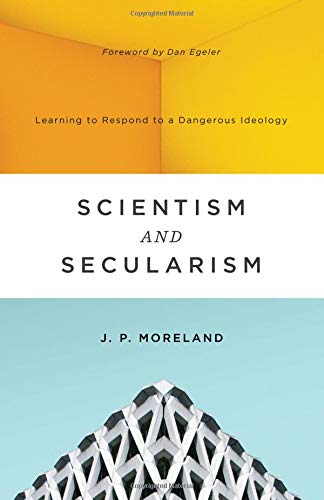A Brief Book Summary from Books At a Glance
By Steve West
About the Author
J. P. Moreland (PhD, University of Southern California) is distinguished professor of philosophy at Biola University. He is an author of, contributor to, or editor of over ninety books, including The Soul: How We Know It’s Real and Why It Matters.
Introduction
In this book, distinguished Christian philosophy J. P. Moreland analyzes scientism and the challenge it presents to the Christian faith. Moreland argues that scientism is logically inconsistent, destroys the foundations for science itself, and must be rejected. He also argues that science and Christianity can support one another. Scientism, not Christianity, is the enemy of science. Christians need to understand what scientism is, its influence in our culture, and how to refute it.
Table of Contents
- The (Scientistic) Air We Breathe
- Why Scientism Matters
- How Scientism Changed the Universities
- Scientism Is Self-Refuting
- Scientism Is the Enemy of Science
- Why Weak Scientism Is No Better Than Strong Scientism
- The Availability of Nonscientific Knowledge
- When Science Exceeds Its Reach: A Case Study
- Scientism and First Philosophy
- Examples of the Authority and Autonomy Theses
- How Do We Explain Things?
- Five Things Science Cannot In Principle Explain (But Theism Can)
- Methodological Naturalism, Theistic Evolution, and Intelligent Design
- The Importance of Integrating Christianity and Science
- A Plan for the Integration of Christianity and Science
One Final Plea
Book Summary
Chapter 1: The (Scientistic) Air We Breathe
Many people subscribe to scientism without even knowing that they do so. Generally speaking, scientism is the view that the only sure knowledge we have comes through the hard sciences. A softer version sees the hard sciences as being vastly superior to other subjects (like religion or philosophy) when it comes to finding truth, even though it is allowed that other subjects can be places where truth can be known. A facile contrast is often that science is based on facts, but religion or ethics are based on faith or belief. Scientism is not about particular facts—it is about a methodology where science always trumps disciplines that are non-scientific. In other words, science becomes the ultimate authority for knowledge. In strong scientism, science is the only way of knowing truth. In weak scientism, science is by far the most reliable and authoritative way.
Chapter 2: Why Scientism Matters
In a culture like ours where scientism is so prevalent, Christianity is pushed outside of the boundaries of what seems plausible. Even for believers, there is a continual and subconscious pressure to submit Christian beliefs to dominate cultural ideas. Religion is continually being characterized as something believed in by blind faith. Scientists are seen as experts who deal with objective facts, but when it comes to religion the truth is merely subjective and God seems to be whatever you want to make him/her/it. Ethics is relativized and hedonism becomes the default. Since morality is not objectively knowable, instead of upholding moral duties we live our lives and attempt to minimize harm to others. As a corollary, freedom is defined as the ability to do anything we want provided it doesn’t hurt others. Tolerance is provided for all, except those. . .
[To continue reading this summary, please see below....]The remainder of this article is premium content. Become a member to continue reading.
Already have an account? Sign In
